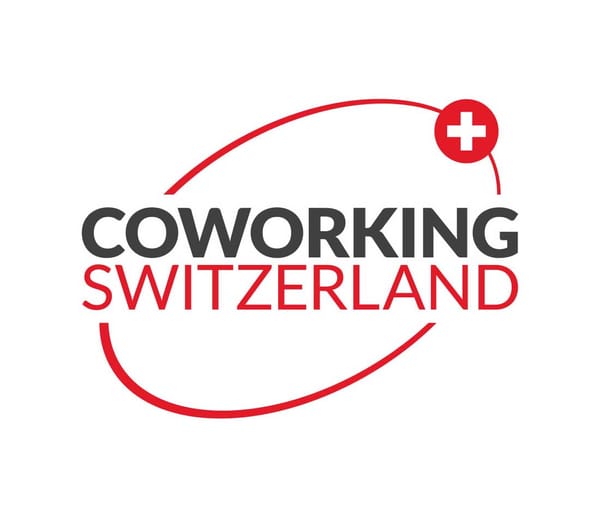Our CEO, Thilo Utke, attended GCUC Manchester, which took place from June 6th to June 7th, 2024. This event, hosted by the Global Coworking Unconference Community (GCUC), brought together industry leaders, coworking space owners, and workspace professionals to explore the latest trends and innovations in the UK coworking industry.
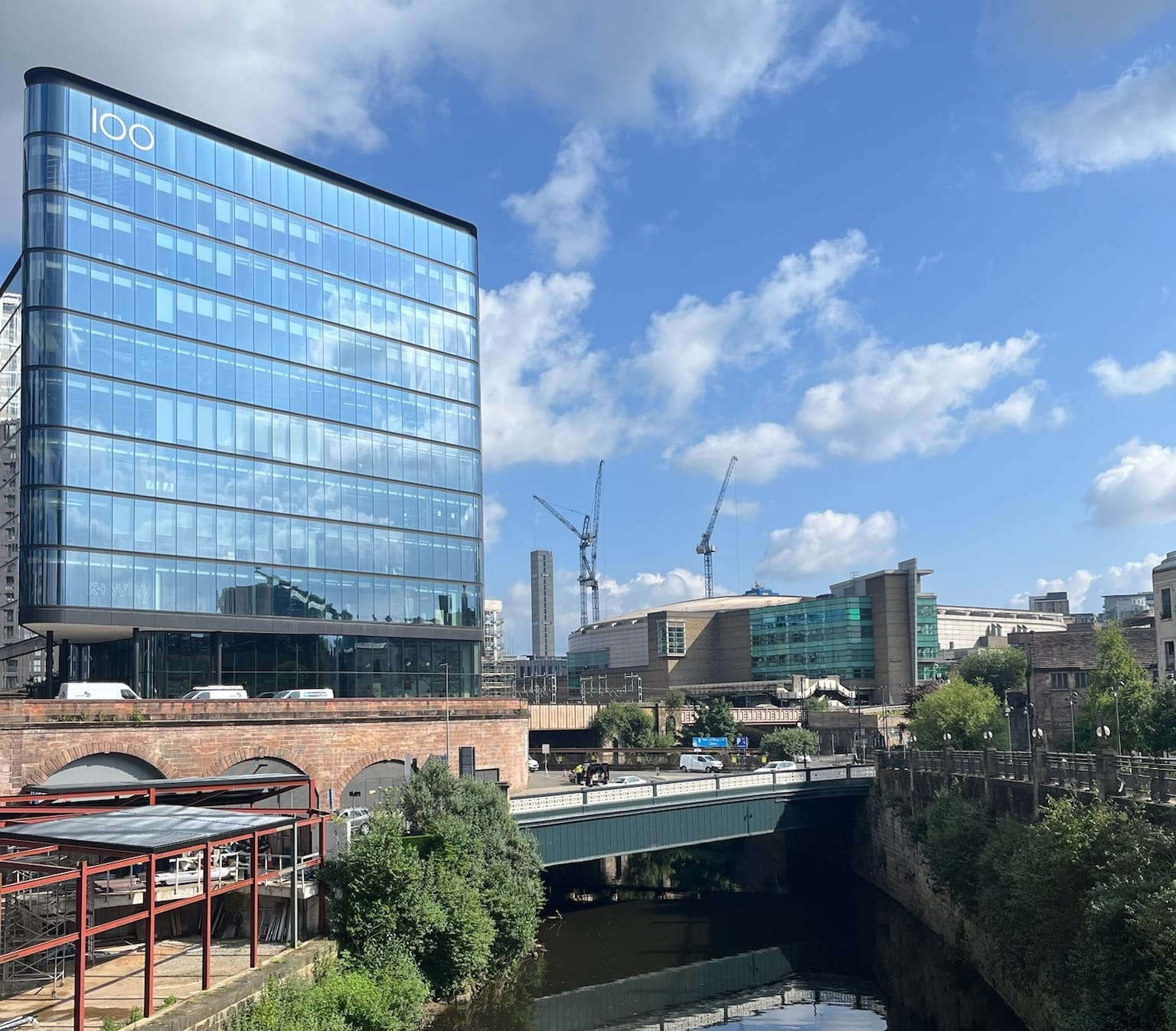
This year's event was hosted by Emilia Lashmar, Director & Producer at GCUC UK and Heather Gray, Sales Director at Clockwise.
Here are some keynotes we gathered for you.
The Boom of Regional Coworking
Market Dynamics and Opportunities:
In this panel hosted by Daniel White, Head of Flexible Workspace - Midlands & South, CBRE; Sarah Kelly, Workspace Director at Avenue HQ; Chris Mapp, COO of Wizu Workspace, and Jack Maher, Head of Flexible Workspace Bruntwood Sci-Tech, talked about regional coworking and the flex market in the UK.
Starting with sharing flex workspace statistics, Chris mentioned that high barriers in London push businesses to alternative locations with more affordable rents and available talent. Local administrations are crucial in attracting and supporting these spaces. Chris also emphasized the rising expectations for office environments to offer more dynamic and versatile features.
Sarah noted the trend of more landlords entering partnerships in previously unconsidered locations, reflecting a market just beginning to pick up.
Jack Maher underlined the importance of collaboration with local authorities to facilitate the development of flex initiatives.
“The local governments' adaptability and involvement are essential because they enable developers to take on more risks for their projects.”
Chris further elaborated that councils need to address broader community issues in development projects, such as homelessness. This holistic approach ensures that flex spaces contribute positively to the wider community. By addressing social issues, councils can help create sustainable developments that benefit everyone, making the area more attractive for businesses and residents alike.
Sara suggested that spaces should achieve 75% occupancy before planning on expansion. Chris advised being honest about these numbers and strategically managing inventory to adapt to local demand.
Furthermore, Chris mentioned that landlords more often attempt to manage properties themselves but eventually seek external assistance due to the complexities involved. He closed the panel by highlighting the growing importance of ESG (Environmental, Social, and Governance) criteria in the industry, indicating a shift towards more sustainable and ethical business practices.
Small Spaces, Big Impact
This panel featured Karen Tait, Founder of The Residence Coworking; Claire Carpenter, Coach & Founder of The Melting Pot Edinburgh; and Efia Mainoo, Founder & CEO of BlackOwned Studios + Marketplace. They discussed how boutique spaces can leverage their strengths—building genuine connections, promoting collaboration, and nurturing vibrant communities—to carve out a niche and make a lasting impact.
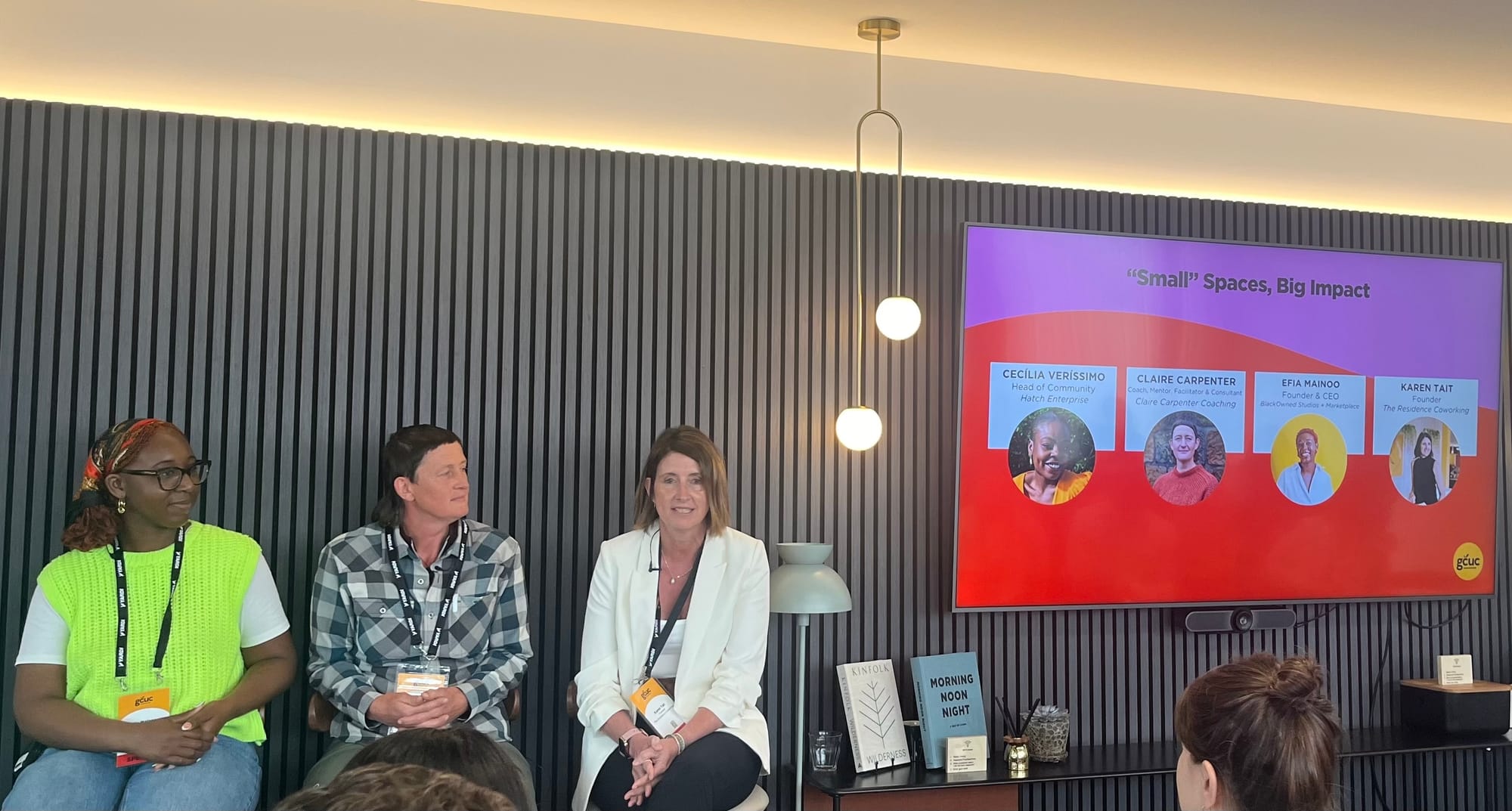
Founders' Motivations and Strategies:
Karen Tait started her space to avoid commuting and create accessible hubs for small business owners. Claire Carpenter and Efia echoed similar motivations, reiterating love for the community and long-term commitment.
Claire mentioned using traditional marketing methods like postcards and events to explain the coworking concept and foster human contact when she started her space more than 20 years ago. She emphasized that the first 20% of members should be ambassadors for the space. Effective strategies include online engagement, traditional marketing, and fostering a loyal member base.
The founders aim to sustain themselves and eventually expand with strategic hires. Efia considers success having day-one members happy with the space, while Claire focused on the social change brought about through the space, helping thousands build their products and bringing change to the community.
Learning from Mistakes:
Avoid costly errors like over-investment in staff or trying to manage everything alone. Karen shared her experience with expensive furniture rentals, while Efia talked about the pitfalls of solo management.
Maintaining Authenticity: Stay true to your values, be fair to customers and team members, and continuously engage with the community.
By embracing their authenticity and staying true to their values, "small" operators can navigate challenges such as sustainability, pandemic recovery, and competition from larger flex office providers.
ESG Certification Panel
This panel focused on the progress and challenges of achieving Environmental, Social, and Governance (ESG) goals, specifically regarding ESG certifications. The panel featured Adam Stanford, Regional Lead at Runway East; Sophie Turnbull, Commercial Director at Huckletree; Alexandra Livesy, Chief Operating Officer at Clockwise; and Will Kinnear, Director at HEWN.
Adam noted that while they are performing well in terms of social aspects, they need to improve their environmental impact by reducing their carbon footprint.
Sophie highlighted that governance drives their efforts, with a secondary focus on environmental goals. Alexandra admitted they didn't meet their ESG goals last year, which influenced their leadership's decision not to pursue B-Corp certification. Will explained that their approach involves working collaboratively with tenants to achieve ESG goals rather than focusing solely on certifications like B-Corp.
When asked about the impact of not being B-Corp certified, Alexandra felt that many pursue it just for the badge. Adam, however, found B-Corp certification helpful as it provided accountability and recognition, though he acknowledged it's not perfect. The challenges of B-Corp certification were discussed, including the pressure to maintain it and the potential for conflicting interests.
Sophie mentioned that while using B-Corp suppliers can provide certification credits, it can also create exclusion and behavior shifts in the community, which are difficult to balance.
Will emphasized that the journey and bringing others along are more important than the badge itself.
A quick show of hands at the end made clear that this discussion raised serious doubts among the audience if B-Corp certification is the right path for them.
Managing Recurring Revenue
In this workshop, led by Keke Patissier – Founder, Koho attendees explored the intricacies of managing recurring revenue streams for sustainable growth.
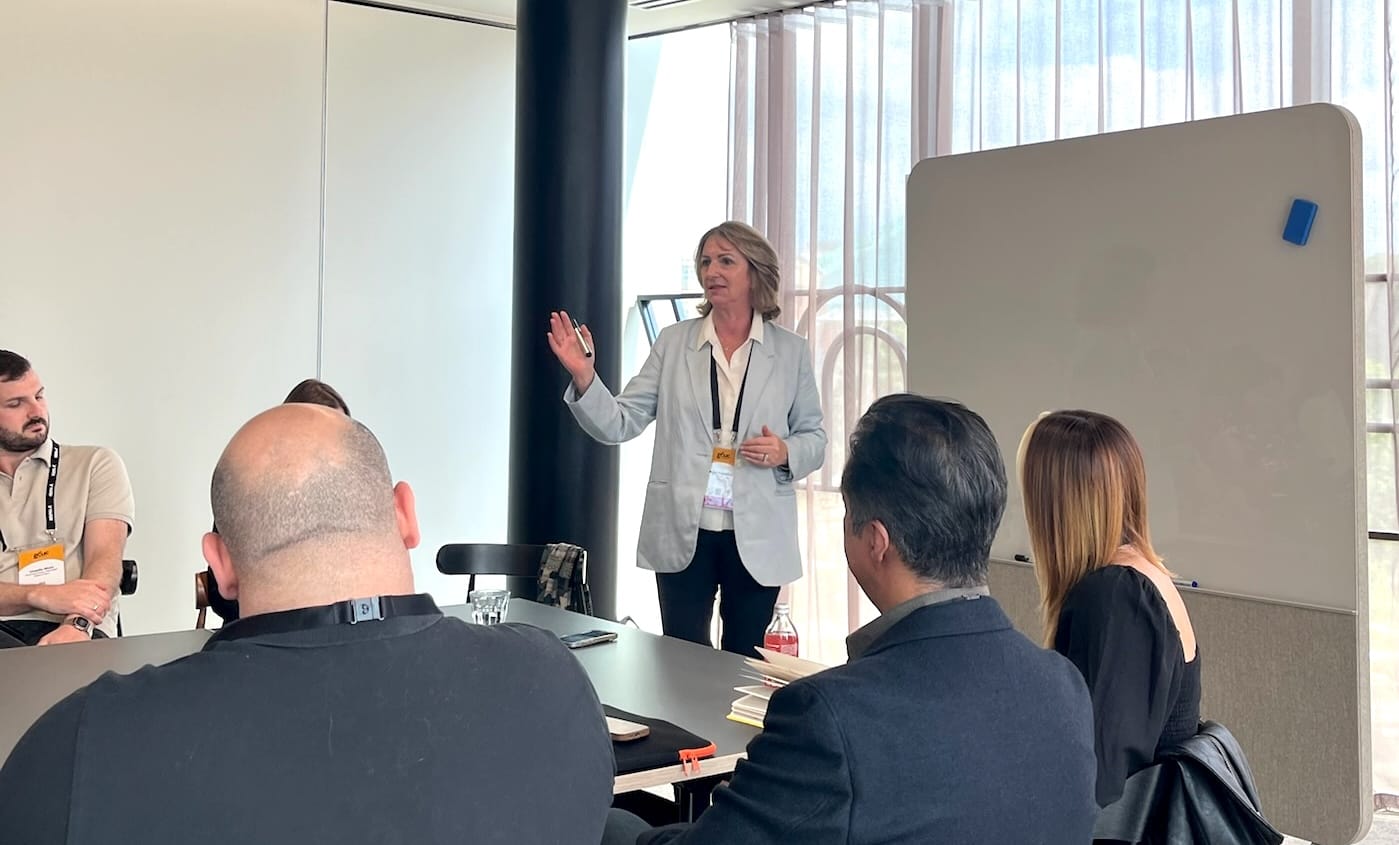
Strategic Revenue Management:
Setting a revenue target is a long-term goal that typically spans several years. Revenue can be divided into four key parts.
- First, there is the contracted and assured revenue, which represents guaranteed recurring revenue.
- Second, there is the contracted but in jeopardy revenue, which has a 1:2 chance of being lost.
- Third, the newly identified business, which focuses on acquiring new clients within a specified timeframe, breaks down further into new areas (1:10 chance), new clients (1:5 chance), existing clients (1:3 chance), and existing products (1:2 chance).
- The remaining portion constitutes the gap in the revenue target. While reporting current performance is essential, looking ahead and anticipating future revenue streams is equally crucial.
This breakdown showed maintaining contracted revenue is a top priority, and specific functions within the organization are accountable for this task. Prioritizing customer issues should involve evaluating lifetime value, approximately three times the annual revenue, and identifying how many customers face the same issue.
Immediate attention should be given to urgent and important problems, followed by important but not urgent issues, while all other problems can be deprioritized. It's also vital to assess whether retaining existing clients or acquiring new ones is more cost-effective.
Keeping these dynamics in mind enables you to build a more successful business on recurring revenue, be it an online community or coworking space.
Strategies for Scaling
Challenges and Risk Mitigation:
During a Fireside Chat Justin Harley, Regional Director of Yardi interviewed Rupert Dean, CEO of x+why on scaling strategies.
A significant mistake was opening 250,000 sqm across three cities in one month in 2023, which put excessive pressure on the team and leadership. As a consequence, they slowed their pace in 2024.
Balancing scale and growth involves ensuring efficiency through management agreements and having capable people in place to handle specific tasks or multiple locations. The primary goal is to avoid financial losses, emphasizing the importance of cash flow. Patience is necessary, especially when there is no immediate liquidity event and profits are minimal.
Maintaining team culture requires kindness and giving team members a sense of purpose, making them ambassadors for the company. Spending time with employees inside and outside of work is crucial. The first week of training focuses on high-level concepts to set the foundation.
Their staff training involves:
- Sessions with the CEO to understand the company's vision.
- Discussions about their personal vision and purpose for their role and understanding the company's message and brand voice.
The Fireside conclusion was that sustainable growth is achieved through patience, thoughtful execution, robust financial management, and a committed, well-trained team. By instilling a shared vision and purpose, companies can create dedicated ambassadors who drive long-term success and foster a thriving community within the organization.
Harmony in Design
This panel, featuring Paul Nellist, Managing Director at Kobe; Dean Connell, Founder at IAMDC; Angela St Clair-Ford, Director at JRA; and Steven Gayle, Project Director at Cast Interiors, explored sustainability in office design.
Sustainability in Office Design:
This panel explored the key elements of designing and constructing coworking spaces that adapt to the evolving needs of the workforce while prioritizing sustainability and community engagement. They provided valuable insights into creating coworking spaces that are both environmentally sustainable and socially inclusive and economically viable.
Below is the summary of the discussion.
Paul stated that 300 tons of office furniture are discarded daily in the UK, underlining the pressing need for circularity, where all items find a second life. Steven observed a positive change in perspective, remarking that a reused, gray floor now has more appeal than a brand-new raised one.
Dean shared a story about eliminating WeWork's office furniture from warehouses due to high storage costs, emphasizing the importance of designing circular furniture to give items longevity through utility.
Angela remarked that the core of office design hasn't changed much, prompting Dean to suggest that the industry is ripe for another disruption. He recommended learning from old, protected buildings, designing interchangeable and stylistically versatile furniture, and using materials that can return to nature when no longer required. Paul added that reused items can tell a compelling story, using office spaces as learning environments to demonstrate sustainable practices. He believes this approach can help sell a more sustainable environment to landlords and partners.
All panelists agreed that longevity and versatility are now major considerations in office design, aiming to create spaces that adapt to changing needs while minimizing environmental impact.
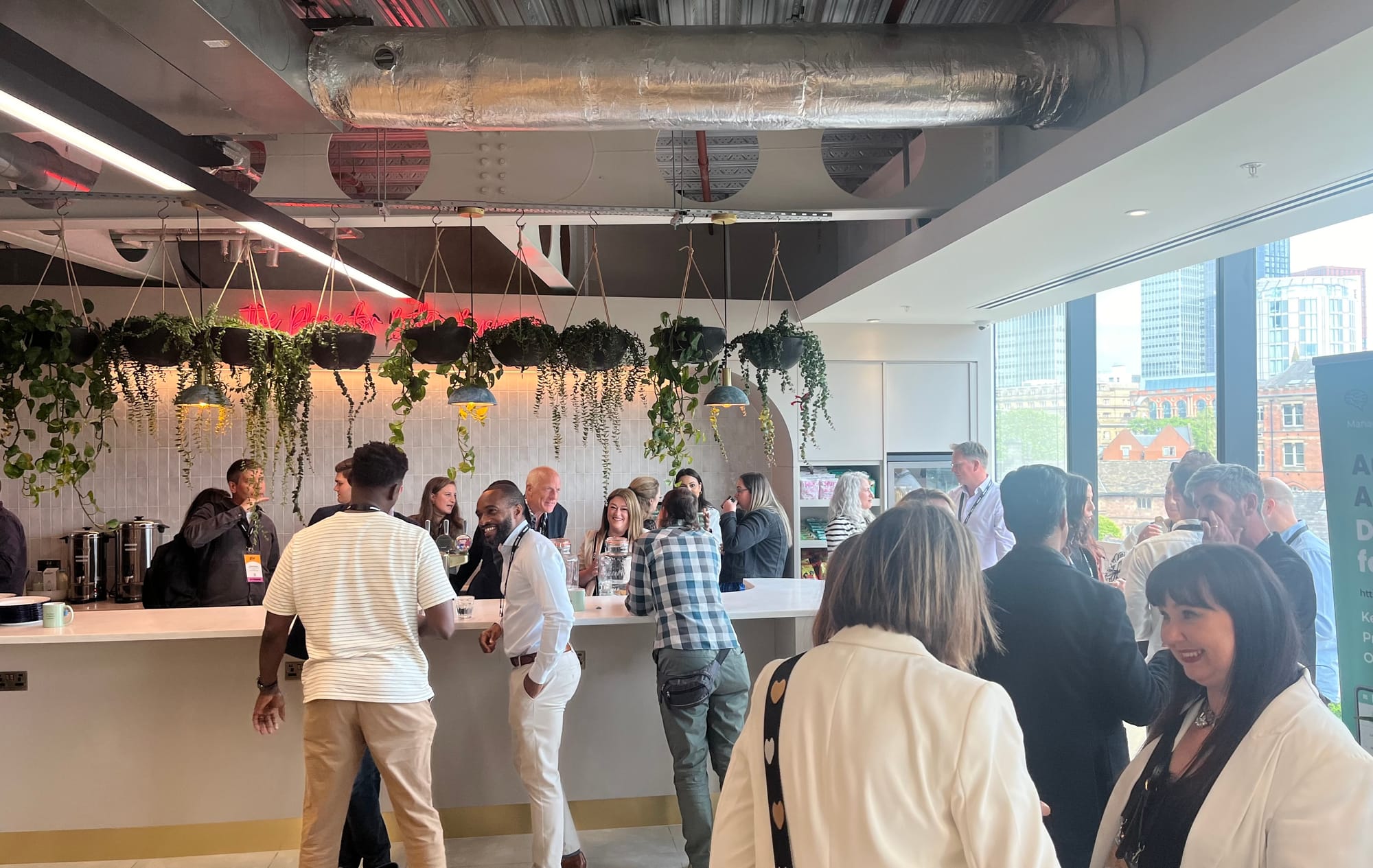
After the insightful discussion, attendees enjoyed a rooftop reception with stunning views over the neighborhood, followed by a well-prepared party featuring delicious local food and live music, celebrating the community and the shared vision for the future.
The GCUC Manchester 2024 Wrap-Up
The GCUC Manchester 2024 conference provided valuable insights into the evolving coworking industry in the UK. Coworking owners can create thriving, impactful spaces by understanding market dynamics, leveraging local partnerships, prioritizing financial viability, and maintaining authenticity.
Cobot, our coworking management software, takes care of operational work, so operators have more time to implement these strategies effectively, ensuring your spaces are successful and contribute positively to the community.



